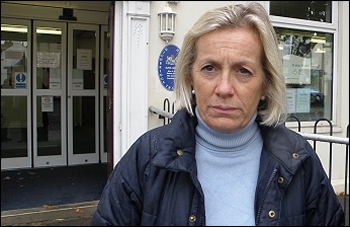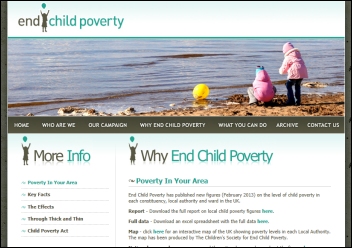Highbridge has one of the highest rates of child poverty in the south west, according to a new report published this week.
The survey by the End Child Poverty campaign says 24% of children grow up in poverty in Highbridge, while 12% do so in Burnham South and 8% in Burnham North.
Across Sedgemoor, the number in poverty is 16%, or a total of 3,836 children while the national average is now 30%.
Children are classified as being in poverty if they live in families on out-of-work benefits or in-work tax credits where their reported income is less than 60% of median income.
The charity Barnardo’s – one of more than 100 charities working together in the End Child Poverty campaign – says more needs to be done by the government to take children out of poverty.
 Burnham and Highbridge MP Tessa Munt told Burnham-On-Sea.com: “We need to go beyond nice words and platitudes. We need to work better together to make the changes needed for our children so they are not disadvantaged for the future.”
Burnham and Highbridge MP Tessa Munt told Burnham-On-Sea.com: “We need to go beyond nice words and platitudes. We need to work better together to make the changes needed for our children so they are not disadvantaged for the future.”
“Although the figures in Highbridge of 24% are below the national average of 30%, they are still way too high. We must support families, support teachers and our schools to get the best possible education for every child.”
“We should work together within government at every level to make sure we are heading in the same direction to reduce child poverty. We need to focus on the children who really are suffering from a lack of opportunity.”
And Burnham and Highbridge Mayor Ken Smout told Burnham-On-Sea.com: “In this day and age it is alarming to hear that people in Burnham and Highbridge are living in such difficulty.”
“Society needs to look at the problem carefully – it is easy to throw money at the issue but more direct help is needed if a long-term solution is to be found. Quick fixes are good in the short-term but the government needs to set goals for the future to irradicate the problem.”
 Enver Solomon, Chair of the End Child Poverty campaign, added: “Far too many children whose parents are struggling to making a living are having to go hungry and miss out on the essentials of a decent childhood that all young people should be entitled to.”
Enver Solomon, Chair of the End Child Poverty campaign, added: “Far too many children whose parents are struggling to making a living are having to go hungry and miss out on the essentials of a decent childhood that all young people should be entitled to.”
“Local authorities are having to deal with reduced budgets but they have critical decisions to make. We’re calling on authorities to prioritise low income families in the decisions they make about local welfare spending, including spending on the new council tax benefit, and on protecting families hit by the bedroom tax. This week we have written to local authority leaders in the local authorities with the most child poverty, asking them what they will do to tackle child poverty in their local area.”
“The government must also closely examine its current strategy for reducing poverty and consider what more it could do to ensure millions of children’s lives are not blighted by the corrosive impact that poverty has on their daily existence.”
A spokesman from the Department for Work and Pensions said it is taking a new approach by “tackling the root causes including worklessness, educational failure and family breakdown.”











